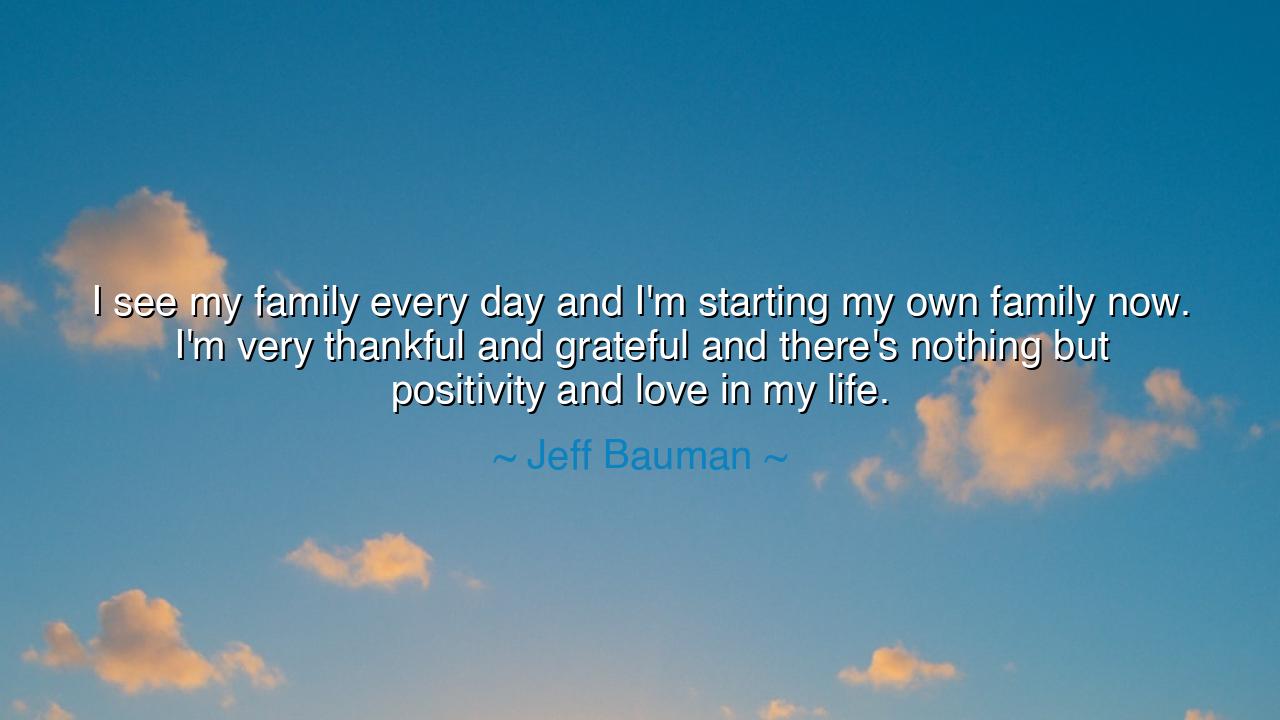
I see my family every day and I'm starting my own family now.
I see my family every day and I'm starting my own family now. I'm very thankful and grateful and there's nothing but positivity and love in my life.






When Jeff Bauman declares, “I see my family every day and I’m starting my own family now. I’m very thankful and grateful and there’s nothing but positivity and love in my life,” he speaks not only as a man who has endured tragedy, but as one who has chosen to rise from it with gratitude and strength. His words carry the weight of survival and the light of renewal. They are not casual sentiments, but the declaration of a soul who has seen darkness and has chosen to walk toward the brightness of love.
Bauman’s story is rooted in resilience. He became a symbol of endurance after surviving the Boston Marathon bombing of 2013, where he lost both his legs. Yet instead of allowing despair to define him, he embraced the strength of his family and the love that surrounded him. To see his family every day was not just routine—it was lifeblood, the anchor that kept him rooted as he rebuilt himself. And to begin his own family afterward was an act of hope, a declaration that life continues, and love is stronger than destruction.
The heart of his quote lies in the double expression of thankfulness and gratefulness. These are not the same, but companions. To be thankful is to acknowledge blessings as they come; to be grateful is to carry them deeply in the soul, transforming them into a lasting attitude. Bauman shows us both: an appreciation of the present moment and a permanent recognition of what love has given him. It is a teaching that no matter what has been lost, gratitude has the power to restore wholeness.
History knows many who have walked this same path of endurance through family and love. Consider the life of Nelson Mandela, who emerged from twenty-seven years of imprisonment without bitterness, finding strength in the love of his people and his kin. Or Helen Keller, who, though trapped in silence and darkness, found joy and purpose through the tireless devotion of her teacher Anne Sullivan. In each case, as in Bauman’s, the presence of love transformed suffering into triumph, bitterness into positivity.
The imagery of “starting my own family now” speaks of renewal. It is one thing to cling to existing bonds; it is another to create new ones. By building his own family, Bauman declares that he is not merely a survivor but a builder of the future. His life is not defined by what was taken, but by what he gives forward: love, legacy, and the promise of continuity. This is the heroic act of all who endure hardship—not simply to survive, but to create anew.
The lesson here is eternal: even in the aftermath of suffering, love has the power to heal, to rebuild, to sustain. When surrounded by family, when lifted by gratitude, when the heart chooses positivity over despair, no tragedy can have the final word. It is not the wounds that define a person, but the strength with which they embrace life afterward.
So let us take Bauman’s words as a guide. Cherish your family each day. Be both thankful for the moments you have and grateful in the depths of your being for the bonds that sustain you. And when hardship comes—as it surely will—choose, as he has chosen, to meet it with positivity and love. For in this way, you will not only endure; you will transform your life into a beacon for all who walk behind you.






AAdministratorAdministrator
Welcome, honored guests. Please leave a comment, we will respond soon